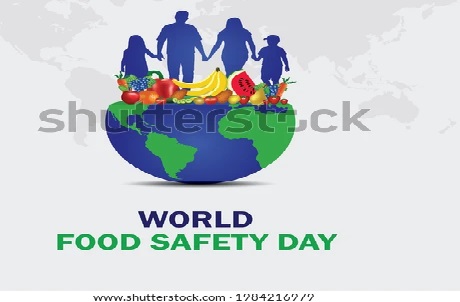
Health consequences of contaminated food, water: World Food Safety Day
As the UN marks Food Safety Day today, June 7, 2022, on the theme: “Safer food, better health”, the focus is on the health consequences of contaminated food and water.
Commemorating the day, the Council For Scientific and Industrial Research (CSIR) Food Research Institute stands with the UN and relevant government agencies to spread the word on the importance of food safety.
Advertisement
The CSIR also takes the opportunity to galvanise all on the way forward as a nation with respect to issues of food safety.
As an institute, we support the country with food safety interventions, through tailored training, the implementation of quality systems in ensuring food safety, as well as the testing of food and feed, to ensure food safety for both humans and animals.
Contaminated food
According to the World Health Organisation (WHO), in 2010, consumption of contaminated food and water accounted for more than 600 million cases of foodborne disease, approximately one in 10 people and billions of dollars are lost each year in productivity and medical expenses resulting from unsafe foods in low and middle-income countries, including Ghana.
Sadly, the health effects of drinking contaminated water cannot be seen / detected immediately and factors such as health status and age of individuals actually determine the extent of sickness experienced.
The consumption of contaminated food and water results in sickness characterised by symptoms, such as, nausea, diarrhoea, intestinal cramps, stomach pain and dehydration.
Apart from that, the microbial-related health effects of contaminated water, as a result of mining activities, and the indiscriminate disposal of chemicals (including herbicides and unwanted pharmaceutical products), inadvertently end up in our water bodies and lead to various kinds of poisoning, such as lead, arsenic, mercury, cyanide resulting in diseases such as cancer, cardiovascular and adverse reproductive and a host of other outcomes.
Data
In many instances, there is the under-diagnosis and under reporting of sicknesses associated with foodborne illness, hence the paucity of scientific incidence data, even in Ghana.
As has been stated over the years, food safety is everyone’s business, therefore, everyone has a role to play.
Policymakers need to continually prioritise food safety challenges in Ghana, allocate resources to research and develop stringent standards, particularly for food business operators, and at the very least, enforce the implementation of Hazard Analysis Critical Control Point (HACCP) in all food business operations, each tailored to the type/scale of operation.
Food business operators must be aware of the food safety pathogens and implement good hygienic practices; the media, must continually preach the message of food safety and its importance to public health, and the scientific community must bridge the knowledge gap with respect to disease incidence, etc.
Also, the general public (consumers included) must all learn or be knowledgeable about the core food safety principles (clean, separate, cook and chill), recognise risky behaviour and call out culprits who flout these principles.
Lastly, reporting and the documentation of incidents of foodborne illness in Ghana must be resumed earnestly to allow for estimation of the national burden of foodborne disease.
The writers are A. Andoh-Odoom, E. Tawiah & C. Tortoe, all with the CSIR – Food Research Institute.




